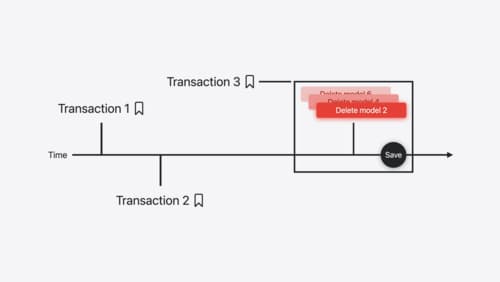coredata
Asked on 2024-08-12
4 searches
At WWDC 2024, Apple introduced several enhancements related to data management with SwiftData, which is a framework designed to simplify building and persisting your app's model layer. Here are some key points:
-
Custom Data Stores: SwiftData now allows you to create custom data stores, enabling you to use different storage backends beyond the default CoreData. This flexibility means you can use backends like SQLite, a remote web service, or even JSON files. This is discussed in the session Create a custom data store with SwiftData.
-
SwiftData History: The framework provides access to the history of changes in a datastore, which is useful for tracking local changes that need to be synced to a remote service. This feature is particularly beneficial for those transitioning from CoreData's persistent history to SwiftData's history. More details can be found in the session Track model changes with SwiftData history.
-
Schema Customization and Indexing: SwiftData allows for schema customization with features like the
#Uniqueand#Indexmacros, which help in defining unique constraints and optimizing query performance. These features are covered in the session What’s new in SwiftData.
These enhancements make SwiftData a powerful tool for app developers looking to manage data efficiently and flexibly across different storage solutions.

What’s new in SwiftData
SwiftData makes it easy to add persistence to your app with its expressive, declarative API. Learn about refinements to SwiftData, including compound uniqueness constraints, faster queries with #Index, queries in Xcode previews, and rich predicate expressions. Join us to explore how you can use all of these features to express richer models and improve performance in your app. To discover how to build a custom data store or use the history API in SwiftData, watch “Create a custom data store with SwiftData” and “Track model changes with SwiftData history”.

Platforms State of the Union
Discover the newest advancements on Apple platforms.

Track model changes with SwiftData history
Reveal the history of your model’s changes with SwiftData! Use the history API to understand when data store changes occurred, and learn how to use this information to build features like remote server sync and out-of-process change handing in your app. We’ll also cover how you can build support for the history API into a custom data store.
